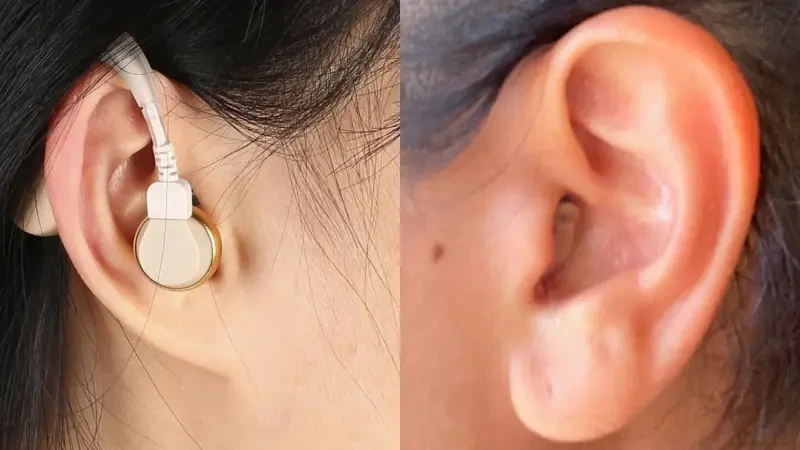Hearing aids are one of the safest and most effective solutions to improve the daily quality of life for people with hearing loss. Hearing problems can have a serious impact on a person’s life—missing out on everyday sounds not only makes communication difficult but can also affect social relationships and emotional well-being.
Because of this, many people turn to devices to help. On the market, you’ll mostly find two types: sound amplifiers and hearing aids.
At first glance, both seem to serve the same purpose—helping people hear better—but there are some very important differences. Unfortunately, some sellers advertise sound amplifiers as “hearing aids,” which can mislead buyers. In this article, we’ll explain the downsides of sound amplifiers, how they differ from hearing aids, and why medically approved hearing aids are the best choice.
A sound amplifier is a very basic device. Its only purpose is to make all sounds louder—whether you have hearing loss or not.
That comes with several problems:
🔊 Damaging sound exposure – Since every sound is boosted equally, your ears are hit with unnecessarily loud noise, which can harm the delicate nerve cells inside the ear.
🔊 No personalization – Everyone’s hearing loss is different. Amplifiers cannot be adjusted to your specific hearing needs.
🔊 Not medically approved – These devices don’t go through medical certification. They’re usually sold as cheap alternatives.
🔊 Risk of long-term damage – Using them for extended periods may actually make your hearing worse.
In short, a sound amplifier doesn’t “fix” hearing—it just makes the noise around you louder.
Many people confuse these two devices, but the differences are huge:
| Feature | Sound Amplifier | Hearing Aid |
|---|---|---|
| How sound is boosted | Amplifies all sounds equally | Amplifies only the frequencies you struggle to hear |
| Personalization | None | Programmed specifically for each user |
| Effect on health | Can damage hearing | Protects hearing and improves quality of life |
| Medical approval | No | Yes—tested and approved by hearing specialists |
| Cost | Cheaper upfront | More expensive, but far more beneficial long-term |
If your real goal is to improve your hearing, the choice is clear: hearing aids.
Hearing aids do much more than just make things louder. They are designed to protect your natural hearing ability while improving sound clarity. Because they are medically approved and fitted under the guidance of hearing professionals, they offer real benefits:
✅ Personalized programming – Each device is adjusted to your individual hearing test results.
✅ Clear, natural sound – They reduce background noise and make speech easier to understand.
✅ Safe for your ears – They work in harmony with your ear’s natural hearing process.
✅ Long-term use – A quality hearing aid can last for years.
✅ Modern technology – Many come with Bluetooth, smartphone connectivity, and other smart features.
Most importantly, hearing aids help people reconnect with the world around them. Being able to hear clearly improves communication, boosts confidence, and supports emotional well-being.
If you have hearing loss, don’t be tempted by cheap sound amplifiers. They may look like a quick fix, but in reality, they can damage your hearing even more. The only safe and effective option is a medically approved hearing aid, fitted by a specialist.
👉 To learn more and explore different models, visit our hearing aids page.
When it comes to hearing loss, choosing the right device makes all the difference. Sound amplifiers can put your hearing at risk, while hearing aids are designed to protect, personalize, and truly improve your quality of life.
The real question is simple:
Do you just want things louder, or do you actually want to hear better and live better?
